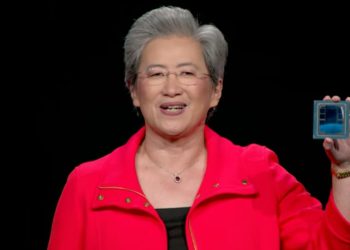Shanghai-listed shares of Chinese chipmaker Wingtech plunged 10% on Tuesday, hitting the daily limit for a second straight session after the Dutch government took control of its Netherlands-based subsidiary Nexperia.
The Dutch Minister of Economy revealed on October 12 that the decision taken in September under the “Goods Availability Act” regarding the company was intended to “avoid a situation in which products manufactured by Nexperia (finished and semi-finished products) would become unavailable in an emergency.”
Nexperia specializes in the mass production of chips used in automotive, consumer electronics and industrial products, making it vital to maintaining European technology supply chains.
In South Korea, the benchmark Kospi reversed course to end 0.63% lower at 3,561.81, after hitting an all-time high of 3,646.67. The construction and mining sectors led the index’s gains, with Korea Zinc up more than 20% and Tongyang Inc up almost 30%.
Shares of LG Energy Solution closed 6.94% higher, rebounding for a second straight session after the battery maker estimated its third-quarter operating profit would rise 34%, boosted by U.S. demand for electric vehicles ahead of government incentives being phased out on September 30.
Shares of Samsung Electronics erased earlier gains, closing 1.82% lower after the company forecast a 32% year-on-year rise in third-quarter profit to around 12.1 trillion Korean won ($8.48 billion), beating LSEG’s SmartEstimates of 10.1 trillion won.
Shares of shipping company Hanwha Ocean pared earlier losses to 5.76%, after China’s Commerce Ministry sanctioned five U.S.-linked units of Hanwha Marine Corporation on Tuesday.
This is a direct retaliation for the United States’ investigation into China’s shipping, logistics and shipbuilding industries, which the ministry said “seriously violate international law and basic norms governing international relations, and seriously undermine the legitimate rights and interests of Chinese companies.”
The order, which is expected to take effect on October 14, will prohibit organizations and individuals in China from doing business with the sanctioned companies, the statement said.
Meanwhile, the small-cap Kosdaq also reversed its trend to fall 1.46% to 847.96.
The reference of Japan Nikkei 225 The index extended its declines by 2.58% to end at 46,847.32, while the Topix lost 1.99% to close at 3,133.99.
SoftBank shares extended their decline, falling 6.14% after its subsidiary, British chip designer Arm, reportedly worked with OpenAI on its deal with Broadcom, according to technology publication The Information. On Monday, in the United States, OpenAI and Broadcom formalized their partnership to build and deploy 10 gigawatts of artificial intelligence accelerators starting late next year.
India’s benchmark Nifty 50 index fell 0.55%, while the Sensex index fell 0.53%. Shares of LG Electronics India soared 50% on debut, building on its IPO which saw the highest demand for an IPO in India since 2008.
Australia’s ASX/S&P 200 rose 0.19% to 8,899.4.
that of Hong Kong Hang Seng Index fell 1.74%, while the Hang Seng Technology Index plunged 3.7%. Mainland China’s CSI 300 index lost 1.2%.
Singapore’s economy grew 2.9% in the third quarter, according to preliminary government data released on Tuesday, faster than the 1.9% expected by economists polled by Reuters. The economy grew by 4.4% in the second quarter.
U.S. stock futures were little changed at the start of the Asian session. In the United States on Monday, major benchmarks recovered a significant portion of the losses suffered last week after US President Donald Trump softened his stance on China.
After a series of trade restrictions and heated exchanges, Trump declared: “Don’t worry about China, everything will be fine!” » in a Truth Social article on Monday.
Earlier Tuesday, Beijing confirmed that it had started collecting port fees on U.S.-linked ships, in retaliation for the U.S. decision to charge Chinese ships docking at U.S. ports starting at 12:01 a.m. EDT the same day.
Overnight, the Dow Jones Industrial Average closed up 587.98 points, or 1.29 percent, at 46,067.58, equal to 67 percent of its Friday loss. The S&P 500 rose 1.56% to end at 6,654.72, retracing 56% of its earlier decline. The Nasdaq Composite jumped 2.21% to 22,694.61, as struggling technology stocks led the rebound.
— CNBC’s Dylan Butts, Anniek Bao, Lee Ying Shan, Alex Harring, Sarah Min and Fred Imbert contributed to this report.









